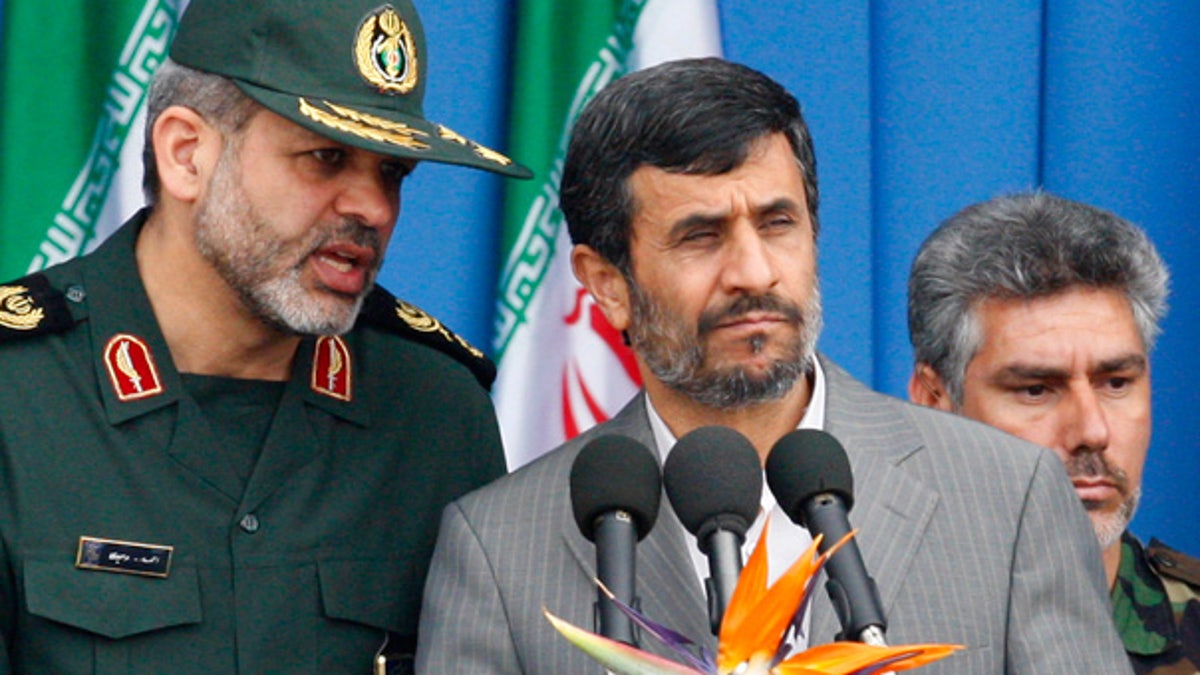
April 18: Iranian President Mahmoud Ahmadinejad listens to his Defense Minister, Gen. Ahmad Vahidi during an army parade in Tehran. (AP)
The U.S. is negotiating with Egypt a proposal to make the Middle East a region free of nuclear weapons, as the U.S. seeks to prevent Iran from derailing a monthlong U.N. conference on nuclear nonproliferation that begins Monday.
U.S. officials familiar with the move call it an important step in assuring countries that Washington—criticized by some for its silence about Israel's undeclared nuclear arsenal—will equitably address weapons proliferation across the region, as Iran seeks to shift focus away from its own nuclear program.
Washington also reassured Israel it won't foist a nuclear-free zone on the region until all parties agree to it and significant progress has been made on Mideast peace.
The U.N. conference on the Nuclear Non-Proliferation Treaty, which is held every five years, is expected to begin with a bang Monday with an address by Iranian President Mahmoud Ahmadinejad, who has condemned the West for its refusal to disarm and for tacitly accepting Israel's nuclear capability.
Secretary of State Hillary Clinton will follow the Iranian leader in the afternoon.
The U.N. talks come at a time when Iran is believed to be heading toward a nuclear capability and the U.S. and allies have been pressing for new, tough Security Council sanctions to curb Tehran's program.
"The Iranians are clearly intending to spoil the party," said a senior U.S. official involved in the nuclear diplomacy. The official highlighted the importance of raising Mideast nuclear-free zone issues.
The designation of the region as a zone free of weapons of mass destruction was a nonbinding agreement that emerged from a 1995 U.N. review of the Non-Proliferation Treaty, a 1970 pact to limit the spread of nuclear weapons. That 1995 agreement was pivotal because it won the indefinite extension of the treaty, but no action on the zone has been taken since.
